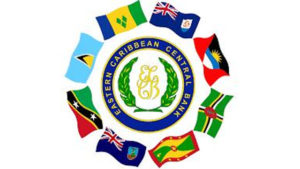 The Eastern Caribbean Central Bank (ECCB) launched the Eastern Caribbean Currency Union (ECCU) Public Debt and Market Information Web Portal on July 23.
The Eastern Caribbean Central Bank (ECCB) launched the Eastern Caribbean Currency Union (ECCU) Public Debt and Market Information Web Portal on July 23.
This initiative, an important deliverable in the ECCB Strategic Plan 2017-2021, marked another milestone in the Bank’s ongoing enterprise to build out a financial market infrastructure within the ECCU that is fit for a modern, strong and diversified financial system.
The ECCB developed the Public Debt and Market Information Web Portal in collaboration with Member Governments and the International Monetary Fund (IMF).
Potential users include investors, credit rating agencies, regional or international financial institutions, academics and students, and Media practitioners.
Another critical objective of this initiative is to broaden the investor base for the Regional Government Securities Market (RGSM), a major component of the Eastern Caribbean Securities Market.
Speaking at the launch, ECCB Governor Timothy Antoine said that information is a public good and that the dissemination of relevant and timely information is an essential element in the transformation of the ECCU, as it facilitates stakeholders in making informed decisions.
“The currency of the 21st century is data and not just data, data at our fingertips. What essentially we now have is a tool in our hands to be able to navigate very quickly very important information. My point is that it’s a wonderful tool now available to our citizens and indeed all stakeholders within and outside of our region. The ECCB recognizes that information is a public good and that the dissemination of relevant and timely information by both the public and private sectors is an indispensable element of our quest to transform the ECCU.
“This initiative was born out of a desire to ensure that the public has the best information available to make informed decisions, whether that is an investor considering the purchase or sale of a government security a credit agency assessing the credit-worthiness of a government, financial institutions requiring information to meet their IFRS9 obligation, a licensed broker providing advice to clients, a regional or financial institution undertaking surveillance , academics and students undertaking research, and of course the media, which is an essential player in our liberal democracies.”
